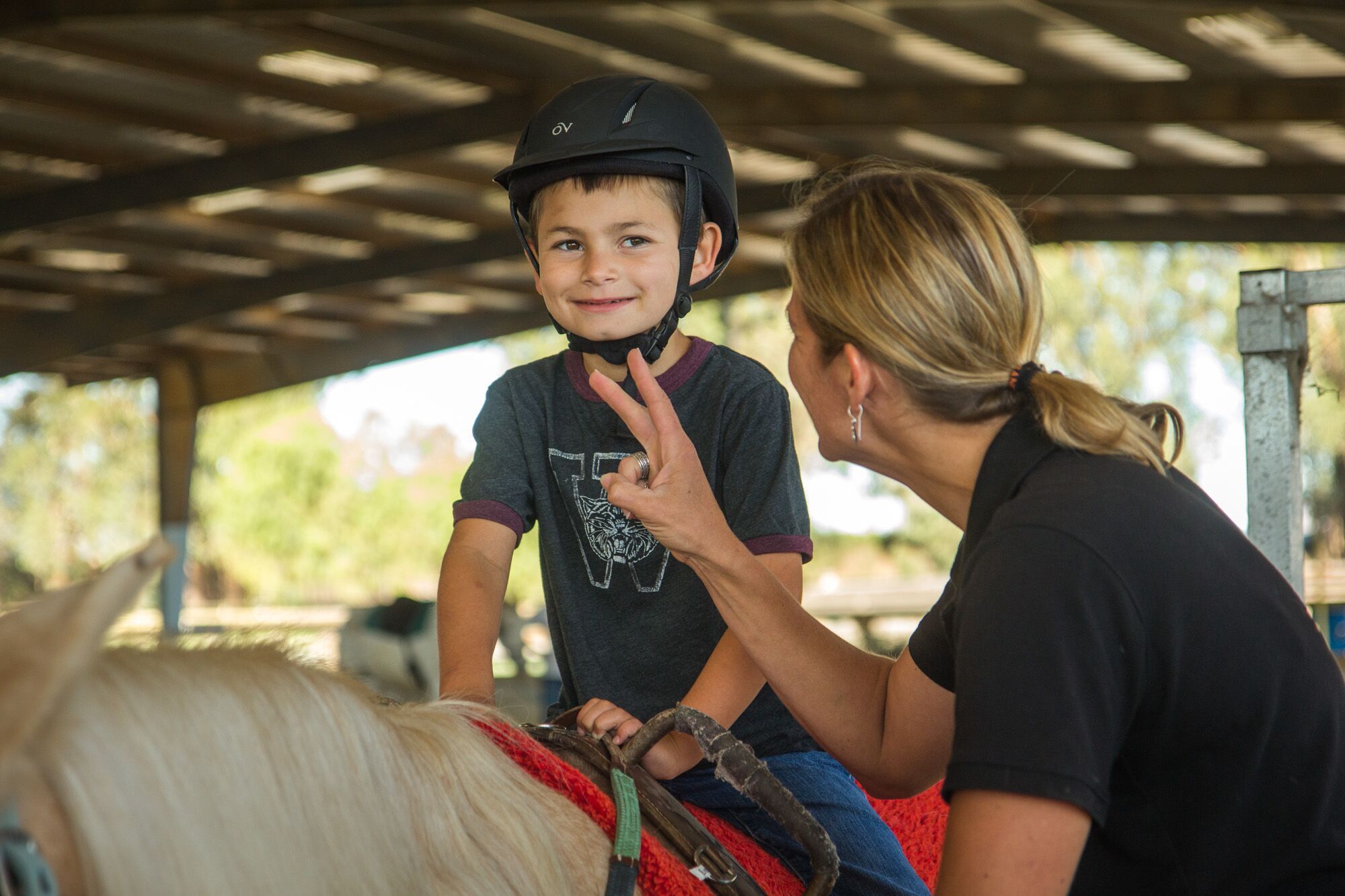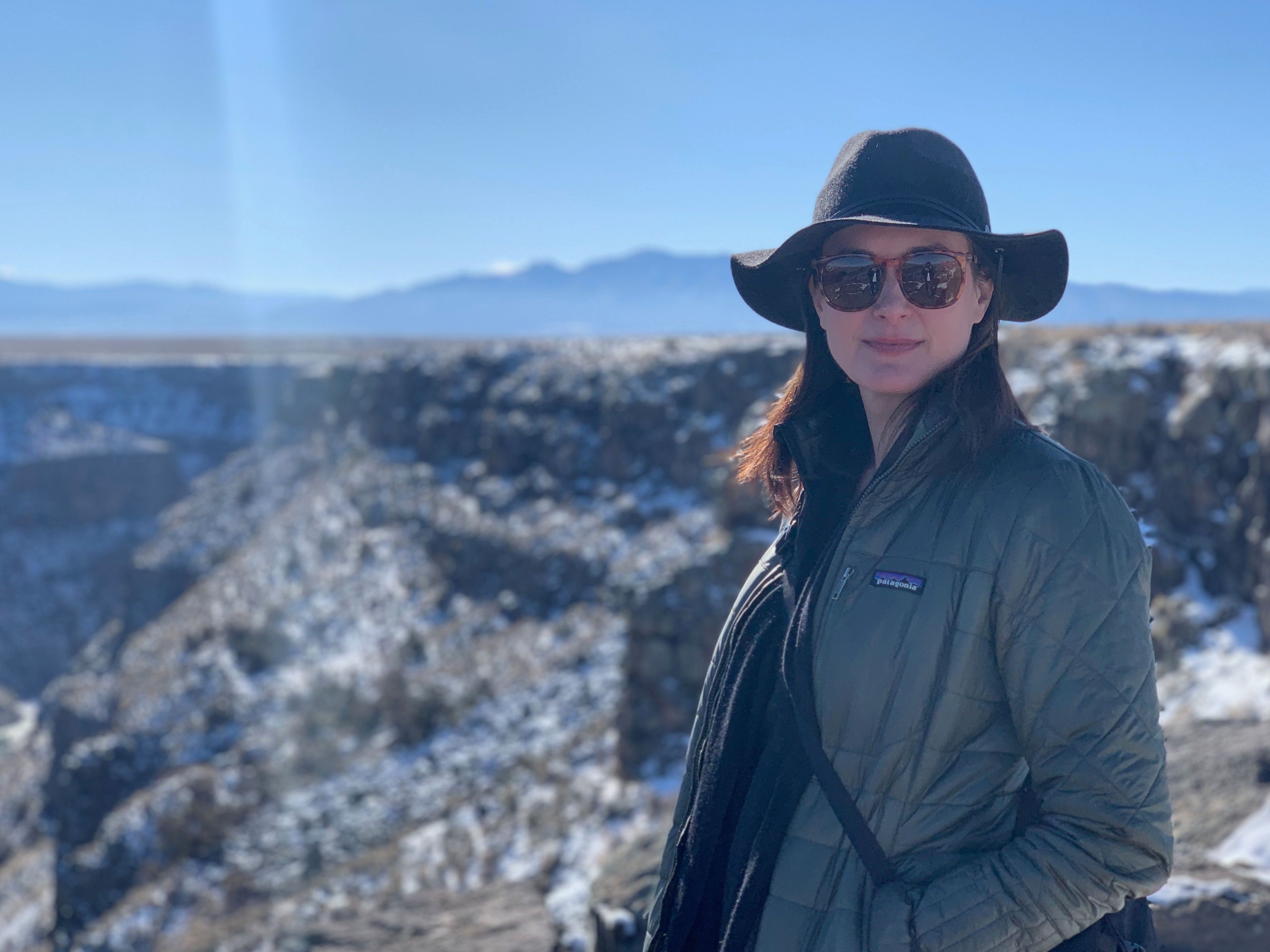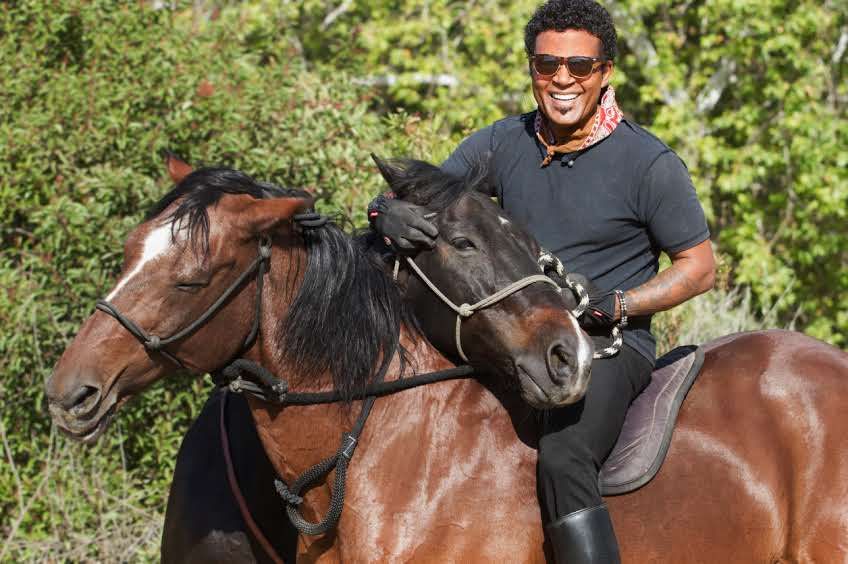Schulz + Brandi Roenick
“I wanted to make a comeback, and I wanted to come back really hard.”
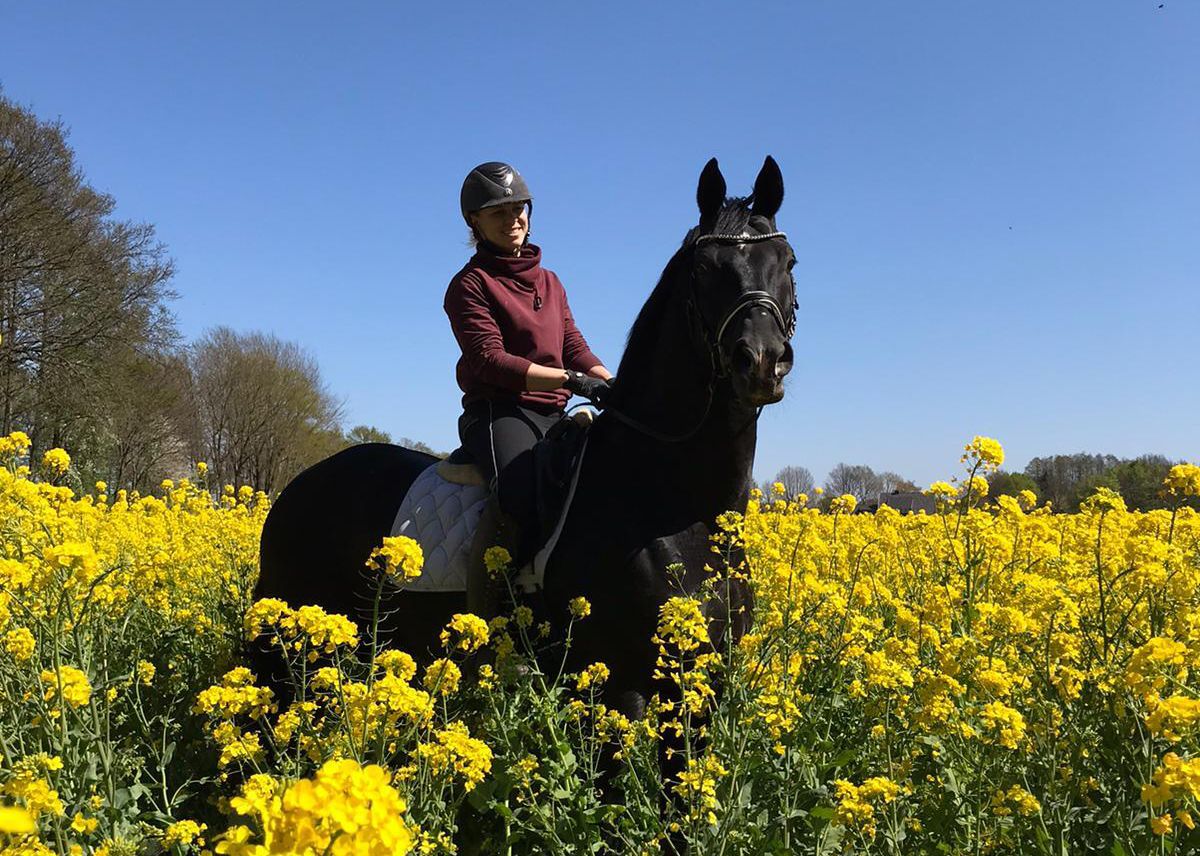

By all material accounts, Brandi Roenick was born into a charmed life. The daughter of Jeremy, a former NHL hockey player, and Tracy, a dressage equestrian who competed at national levels, Roenick began riding horses as soon as she could walk. Her parents owned a training stable in Scottsdale, Arizona, and agreed to homeschool her so that she could train full-time with Steffen Peters, a three-time Olympic medalist, and Debbie McDonald, another Olympic medalist, and one of the most renowned trainers in the industry. “I dedicated my entire life to the sport,” Roenick says. “I missed a lot of normal things because I was in the stable all of the time, even on the weekends.”
By the age of 12, Roenick was already competing at the national level. By the age of 17, she had won three consecutive team gold medals at the Adequan/FEI North American Junior and Young Riders Championships. In 2012, she also won an individual gold medal while riding Weltino’s Magic, a champion Westfalian gelding. Before pairing with Roenick, Weltino’s Magic won the 2011 Pan Am gold medal with his rider, Steffen Peters.
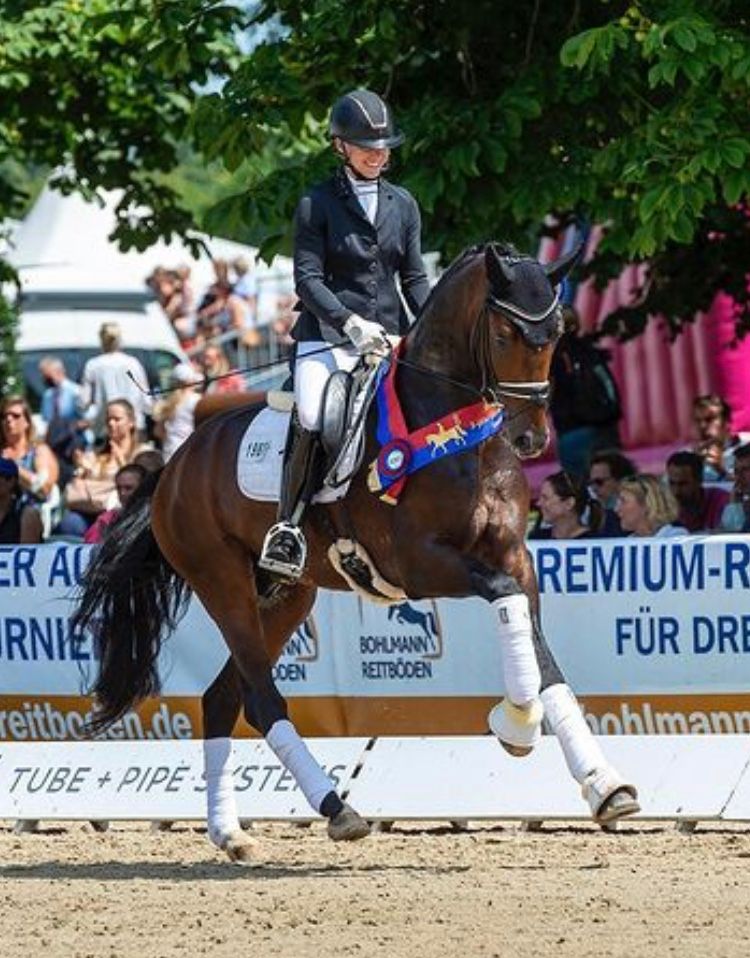
Roenick knew that she had the skill and passion to ride Weltino’s Magic, but other riders in her milieu did not agree. They thought that riding on such a successful horse gifted Roenick an unfair advantage. After a series of what Roenick describes as “less than average” comments from people she thought were her friends on social media, she fell into a deep depression. She began losing her nerve in competition. A few months after deciding to end their lease, Roenick went to her parents while they were drinking coffee one morning and told them: “I don’t ever want to sit on another horse again.”
Roenick had suffered from anxiety and depression since a young age — she estimates the problems began when she was 11. When she would try to tell other people about her feelings — parents, trainers, fellow competitors — they would point out how lucky Roenick was. Roenick recalls them asking how she could be so depressed when she was riding incredible horses, and training with Olympians. “I can understand why people think that, but at the end of the day, I’m still human, regardless of what I have, what’s in my bank account, what’s in my family’s bank account, or what horse I’m sitting on in the saddle,” Roenick says. “I still have feelings.”
When Roenick decided to stop riding competitively, she also decided that she wanted to learn how to support herself financially. She briefly moved to the panhandle of Florida before returning to Scottsdale, where she lived in her parents’ guest house while working full time at a sushi restaurant.
During this time, she was rarely contacted by former friends and acquaintances from the competitive equestrian world. "I fell off the face of the earth," she said. "No one asked what happened." She thought that this was strange, especially given how consistently she competed at the top levels of the sport. She began to feel like if she wasn't on a podium, it was like she didn't even exist at all. "This has happened to so many young riders and juniors before me," she says. "I know so many girls who have fallen off the face of the earth."
Without the anchor of riding, Roenick’s depression and anxiety worsened. She began to contemplate suicide. “I was put in a serious horrible mental situation,” she says. “No one was there to help, and I mentally broke down.”
One morning, while her parents were out of town, Roenick went and sat in her truck. She called her mom and told her: “I don’t know what you have to do, but if you want me to continue to stay around, someone needs to help me.” Her mother, who had previously brushed off Roenick’s concerns about her mental health, enlisted the help of friends and family. Within a day, Roenick was placed in a rehabilitation facility where she stayed for a year and a half before she felt ready to return to her life — and to riding.
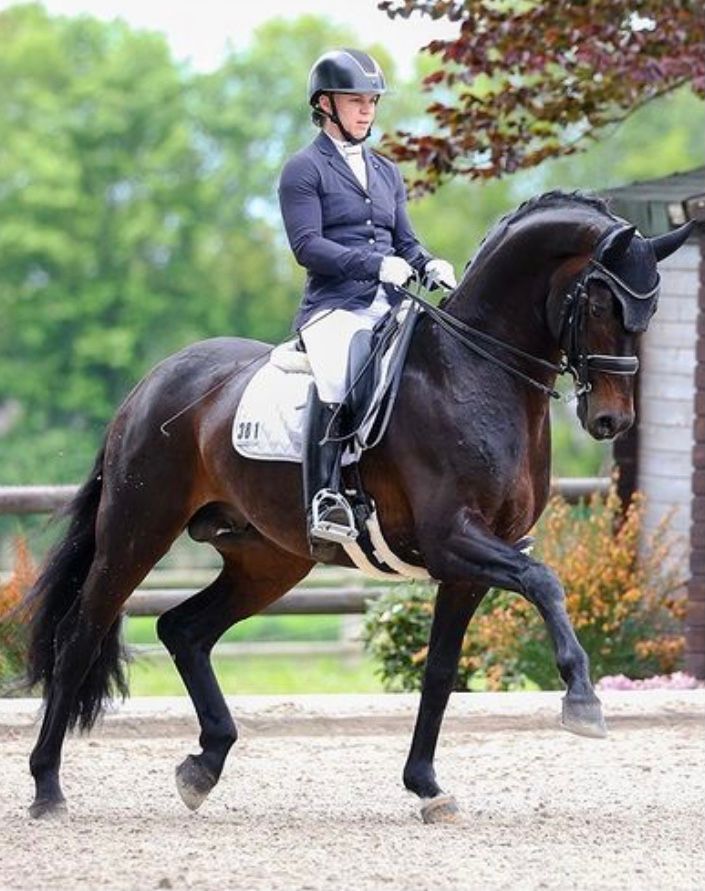
“People don’t have to feel like just because you go through a mental health crisis that it’s the end,” Roenick says. “I’m living complete proof that you can go to the darkest and deepest parts of your life where there is no light at the end of the tunnel, and you still can come out and do amazing things no matter what people say to you.”
Roenick is far from the only elite female athlete to suffer from mental health problems. Naomi Osaka, 23, the highest paid female athlete of all time, recently withdrew from the French Open citing concern for her mental health. Simone Biles, 24, who is inarguably the greatest gymnast of all time, withdrew from most events in the 2021 Tokyo Olympics after revealing that she was not in a mental position to compete. And Charlotte Dujardin, who won two gold medals in dressage at the London Olympics in 2012, noted that in the aftermath of the event, the attention and fame brought her close to suicide.
Female athletes, in general, suffer from mental health issues at higher rates. A 2016 study published by the British Journal of Sports Medicine found that 30 percent of female student-athletes showed signs of depression compared to 18% of male athletes, for example.
“As an athlete, you need to be physically on top of your game, but if you’re mentally not there, you have absolutely no chance,” Roenick says. She surmises that being the best at any type of sport leaves you uniquely open to backlash from people who want to tear you down, which can worsen mental health issues. In equestrian sports, the pressure to perform well is especially intense. You’re alone in the ring, with an animal, and even if you have a supportive team on the sidelines, they can’t hold your hand while you compete.
“I think the depression would have come no matter what, but I don’t regret devoting my early years to the sport,” Roenick says. “The battle made me ten times stronger today than the person I was when I was as a teenager.”
When Roenick decided she wanted to return to riding, she did so without the resources that had been available to her as a child — funds from her parents, championships horses, sponsors and trainers. “There are no star searchers anymore,” she said. “People aren’t going to come looking for you.”
Fortunately, she was motivated. “I’m stubborn,” she says. “I wanted to make a comeback, and I wanted to come back really hard.”
Rather than attempt the comeback in the United States, where she had often been unhappy, Roenick decided to move to Germany, where she had spent a happy summer in her teens. Germany, which provides a standardized education for all riders trained in the country, consistently produces the best equestrians in the world — Isabell Werth, the top ranked dressage rider in the world, was born and raised in Germany, for example. At the 2021 Tokyo Olympics, Germany won the team gold medal — which was shocking to no one given that the team has only lost one gold medal since 1984.
Through a friend, Roenick got a job as a flat rider — meaning practicing paces — for a jumping rider who trained at a small, family-owned stable. In a stroke of good luck, she heard that Paul Schockemöhle, one of the premiere breeding stables in Germany, was looking for a rider to train its young horses. After riding two horses, the stable hired her.
Before working for Shockemöhle, Roenick had very rarely trained with young horses — in fact, the youngest horse she ever rode before moving to Germany was seven years old. After some early mishaps, including getting thrown from a horse on her first morning at work, Roenick has come to love riding what she describes as the “youngsters.” “I get the horses that are a little spicy, that needs someone to bring them down a few notches,” Roenick laughs. In a barn of 350 horses, Roenick is responsible for 15. On an average day, she rides upwards of nine of them. Generally, she trains alone. “I’m so passionate about these horses,” she says. “There’s always something new coming, and you getting super excited about it.”
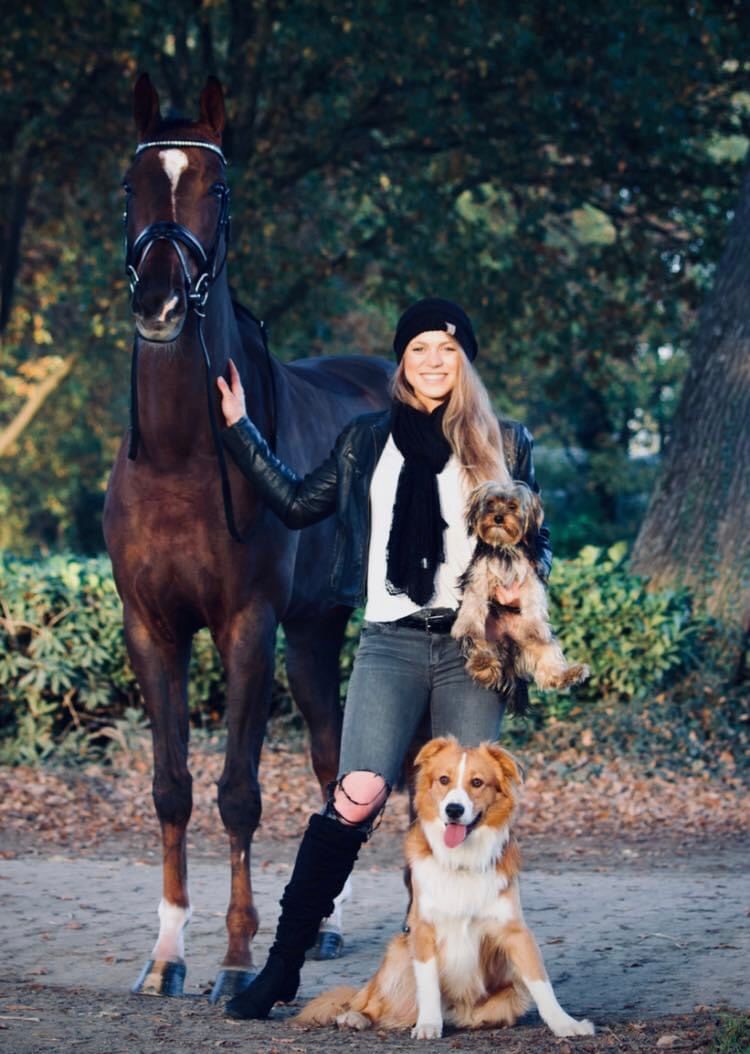
It probably comes as no surprise, given her drive and her stellar record as a junior rider, that Roenick was successful almost immediately after she began competing in dressage again. In early August, Roenick and her horse, Debutant, placed fourth at the Dressage Horse Finals at the 2021 Bundeschampionate in Warendorf, which is the German Federal championships for young horses and ponies. Debutant is a three-year-old stallion — he had only competed in a single event with Roenick before arriving at the Bundeschampionate. “He went in there like a true professional, like he’s done it a million times before,” Roenick says. “He’s just a really good boy.”
The anxiety from her early days of competing has not completely left Roenick. In fact, she still feels a tremendous amount of pressure to perform not only for herself, but also for her team, and for the stable she represents. “I can be a mess beforehand, but as soon as I put my foot in the stirrup, I’m so focused,” she says. “My expectation is that I will represent my company well.”
Roenick knows that everything she’s been through has made her mentally stronger. She also knows that she’s likely to suffer from anxiety and depression for her whole life — it’s part of who she is, and what makes her so driven. What makes her life different now is that she has an entire tool kit to deal with her emotions, which gifted to her in her years at the rehab facility, and afterwards, by consulting with sports psychologists and other mental health professionals.
Roenick knows that not everyone has the luxury of rehabilitation, or even just affording a psychotherapist. However, she notes, there are so many free resources out there for anyone who is suffering and needs to talk about how they are feeling. “There are people out there who will listen, and will not hold shame over you,” she says.
If you need to talk to someone, Roenick recommends attending a 12-step meeting, even if it’s for something you don’t necessarily suffer from, like alcoholism or drug addiction. In a 12-step meeting, you can share your story, and get advice from people who are empathetic and open to listening. “I met some of the greatest people in my life going to meetings,” Roenick says. “We came from completely different backgrounds, but they could relate to what I was going through.” And while social media can worsen symptoms of depression or anxiety, it can also offer private support groups or spaces for video chats that might help you if you want to speak to someone without judgement. And if none of those are appealing, Roenick says, you can always DM her.
There was a moment when Roenick first arrived in Germany when she told herself, “You’re not cut out for this.” She realized, however, she wasn’t cut out for her other life either, where she had suffered from depression, and not fulfilled her potential. “I can either go back to hating myself, or go back out there with the big guys,” Roenick says. She chose the latter. “I’m going to do the best I can to make sure my name is known out here in Europe,” she says.
Brandi's Causes
Suicide Prevention Lifeline: A national network of free and confidential crisis centers for people who are experiencing suicidal thoughts or emotional distress. Open 24 hours a day, seven days a week.
Athletes for Hope: Founded by Muhammad Ali, Mia Hamm, and Andre Agassi, among other athletes, the organization primarily pairs athletes with causes, but it also provides resources for athletes that are suffering from mental health issues.
Project HOPE: An organization that empowers health care workers to provide better services, including mental health services.
